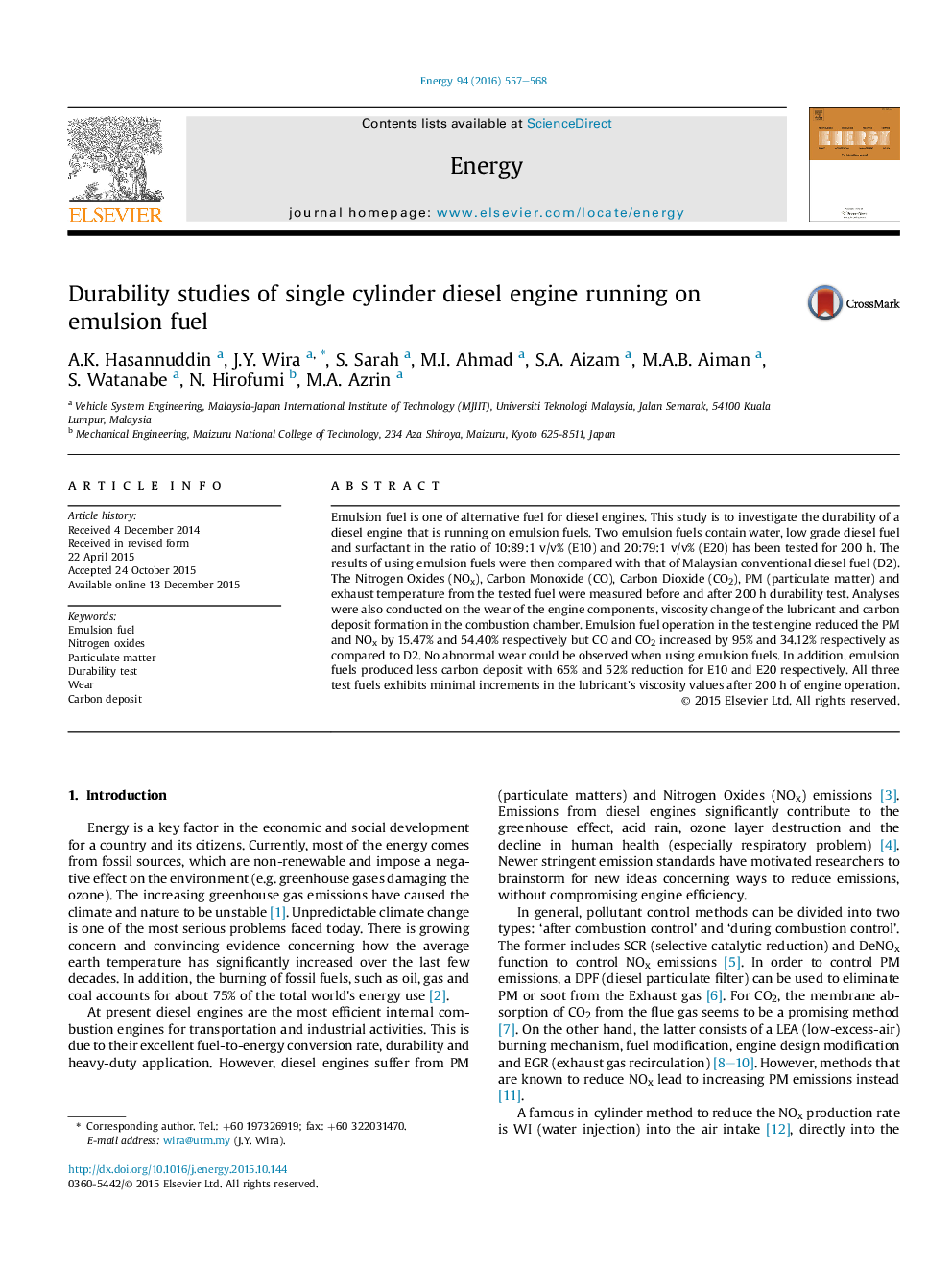| Article ID | Journal | Published Year | Pages | File Type |
|---|---|---|---|---|
| 1731212 | Energy | 2016 | 12 Pages |
•At the end of the durability test, emulsion fuels produced a higher incremental PM, NOx and exhaust temperature.•No abnormal wear could be observed when using the emulsion fuels.•Emulsion fuels produced less carbon deposit.•Emulsion fuels showed slightly higher viscosity of the lubricant.
Emulsion fuel is one of alternative fuel for diesel engines. This study is to investigate the durability of a diesel engine that is running on emulsion fuels. Two emulsion fuels contain water, low grade diesel fuel and surfactant in the ratio of 10:89:1 v/v% (E10) and 20:79:1 v/v% (E20) has been tested for 200 h. The results of using emulsion fuels were then compared with that of Malaysian conventional diesel fuel (D2). The Nitrogen Oxides (NOx), Carbon Monoxide (CO), Carbon Dioxide (CO2), PM (particulate matter) and exhaust temperature from the tested fuel were measured before and after 200 h durability test. Analyses were also conducted on the wear of the engine components, viscosity change of the lubricant and carbon deposit formation in the combustion chamber. Emulsion fuel operation in the test engine reduced the PM and NOx by 15.47% and 54.40% respectively but CO and CO2 increased by 95% and 34.12% respectively as compared to D2. No abnormal wear could be observed when using emulsion fuels. In addition, emulsion fuels produced less carbon deposit with 65% and 52% reduction for E10 and E20 respectively. All three test fuels exhibits minimal increments in the lubricant's viscosity values after 200 h of engine operation.
